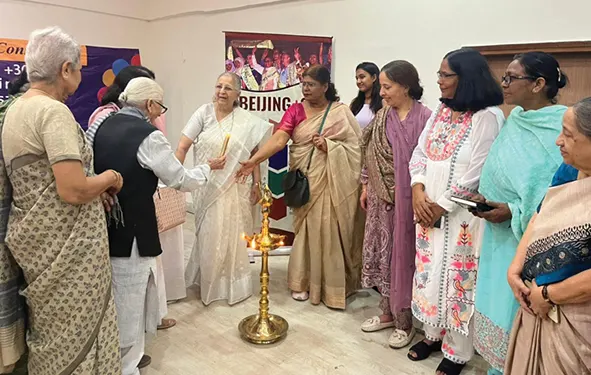NEW DELHI, 27 Oct: Arunachal Pradesh Women’s Welfare Society (APWWS) president Kani Nada Maling advocated for a ban on polygamy in Arunachal Pradesh at a ‘national consultation’ programme here recently.
Pointing out the specific concerns relevant to Arunachal during the national consultation on ‘Beijing +30: Revisiting and re-envisioning Beijing’, held during the All India Women’s Conference here from 22-23 October, Maling said
that polygamy should be banned in Arunachal in order to promote women’s legal equality and dignity while addressing a critical aspect of customary practices that impact women’s rights.
Participating in the discussion on critical issues, including women’s economic status, climate justice and violence against women during the national consultation, the APWWS president emphasized the need to earmark 30 per cent of MLA/MP local area development funds for the welfare and development of women and children.
On behalf of the APWWS, Maling further said that, during the assembly sessions, voices of the elected women legislators should be heard and their rights protected during discussion in the assembly.
“The speaker should address the members on the opening day of the state assembly, emphasizing the importance of respecting and upholding the dignity and rights of women. It is essential for elected representatives to be sensitized to the issues affecting women, ensuring their voices are heard and their rights are protected in all legislative discussions,” she said.
She also emphasized on stronger alliances among women’s organizations across the state to foster “a unified and impactful platform for advocacy and action.”
As part of the national consultation, Maling provided a written feedback on the evaluation of women-centric legislations introduced since the Beijing Declaration. She noted that “while many departments of the state government have formed internal complaint committees (ICC) and local complaint committees (LCC), these committees often exist nominally, with members lacking awareness of their roles and responsibilities.”
Maling highlighted the importance of the women & child development (WCD) department in issuing clear guidelines “for the proper functioning of these committees.”
Earlier, the consultation commenced with a video on the 1995 UN conference in Beijing, highlighting the 12-point charter of demands.
Former Lok Sabha speaker Sumitra Mahajan delivered an impactful speech on advancing women’s empowerment.
Representatives from 18 states across the country took part in the consultation.




